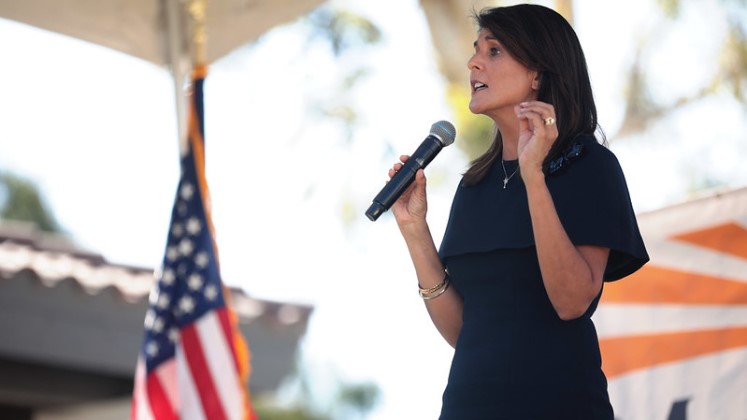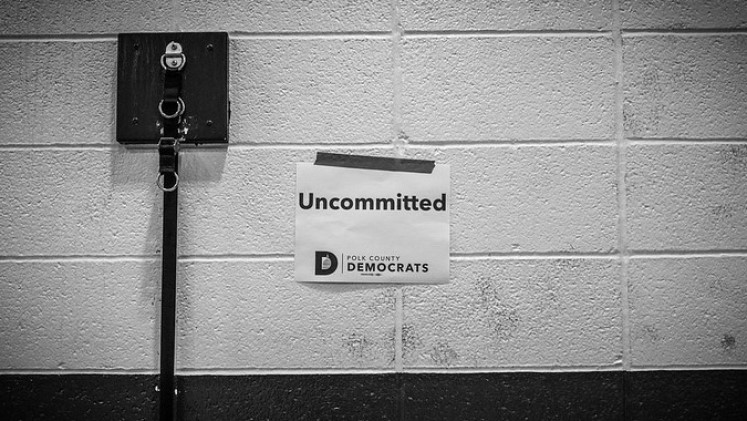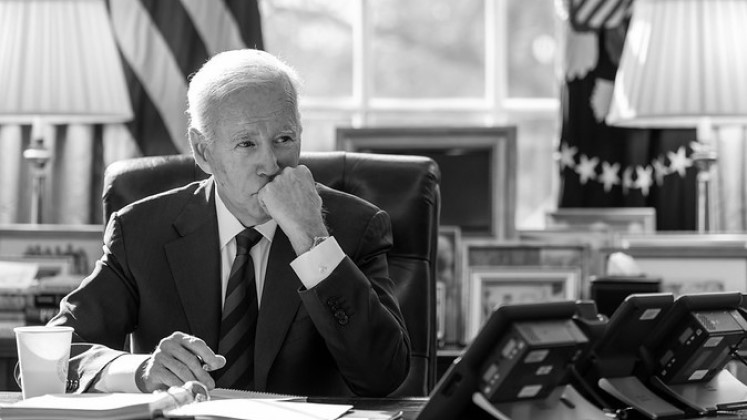 Televised presidential debates are key cultural markers in US presidential election cycles. Peter Finn looks at the history of US presidential debates and the proposal for debates in 2024 put forward by the Commission on Presidential Debates that has, ultimately, not been adopted, and the final proposals that will see the first of two scheduled debates occurring in late June 2024.
Televised presidential debates are key cultural markers in US presidential election cycles. Peter Finn looks at the history of US presidential debates and the proposal for debates in 2024 put forward by the Commission on Presidential Debates that has, ultimately, not been adopted, and the final proposals that will see the first of two scheduled debates occurring in late June 2024.
- This article is part of ‘The 2024 Elections’ series curated by Peter Finn (Kingston University). Ahead of the 2024 election, this series is exploring US elections at the state and national level. If you are interested in contributing to the series, contact Peter Finn (p.finn@kingston.ac.uk).
Televised presidential debates have featured in all US elections since 1976, with the first occurring in 1960. Since 1987, they have been organised by the Commission on Presidential Debates, a nonprofit corporation set up by the Republican and Democratic parties. However, in 2024, both the Trump and Biden campaigns have shifted away from engagement with this commission.
US Presidential debates, 1976-2020
As Table 1 shows, since Republican Candidate President Gerald Ford debated the eventual winner of the 1976 contest, Democratic Candidate Jimmy Carter, debates between presidential candidates have occurred in all presidential election cycles, meaning there has been an unbroken stretch of presidential election cycles featuring at least two debates of almost five decades. Indeed, the only exceptions since 1960, when Democratic Candidate John F. Kennedy debated Republican Candidate former Vice President Richard Nixon, have been 1964, 1968, and 1972. The same can generally be said for vice presidential debates that, bar 1980, have occurred every election since 1976, when Democratic vice presidential nominee Senator Walter Mondale debated Republican vice presidential nominee Senator Bob Dole.
Table 1 – Presidential Debates 1960-2020
| Cycle | Presidential Candidates | Number of Debates |
|---|---|---|
| 1960 | Richard Nixon (Rep) | 4 |
| John F. Kennedy (Dem) | ||
| 1964; 1968; 1972 | No debates | |
| 1976 | Gerald Ford (Rep) | 3 |
| Jimmy Carter (Dem) | ||
| 1980 | Ronald Reagan (Rep) | 2 |
| Jimmy Carter (Dem) | (1 Reagan-Anderson, 1 Reagan-Carter) | |
| John B. Anderson (Ind) | ||
| 1984 | Ronald Reagan (Rep) | 2 |
| Walter Mondale (Dem) | ||
| 1988 | George H. W. Bush (Rep) | 2 |
| Michael Dukakis (Dem) | ||
| 1992 | George H. W. Bush (Rep) | 3 |
| Bill Clinton (Dem) | ||
| Ross Perot (Reform Party) | ||
| 1996 | Bob Dole (Rep) | 2 |
| Bill Clinton (Dem) | ||
| 2000 | George W. Bush (Rep) | 3 |
| Al Gore (Dem) | ||
| 2004 | George W. Bush (Rep) | 3 |
| John Kerry (Dem) | ||
| 2008 | John McCain (Rep) | 3 |
| Barack Obama (Dem) | ||
| 2012 | Mitt Romney (Rep) | 3 |
| Barack Obama (Dem) | ||
| 2016 | Donald Trump (Rep) | 3 |
| Hilary Rodman Clinton (Dem) | ||
| 2020 | Donald Trump (Rep) | 2* |
| Joe Biden (Dem) |
*Three debates were originally scheduled, but Trump tested positive for COVID-19 on October 2, 2020, leading to the cancellation of what would have been the second of three debates. Sources: Pew Research Centre (1960-2016); Finn, Imiola, & Ledger (2020)
Commission on Presidential Debates Proposition
Since the late 1980s presidential and vice-presidential debates have been arranged by the Commission on Presidential Debates. As Table 2 shows, the 2024 proposal from the commission involved three presidential debates between September 16 and October 9, 2024. These were scheduled to take place at Texas State University in San Marcos, Texas on September 16, Virginia State University in Petersburg, Virginia on October 1, and University of Utah in Salt Lake City, Utah on October 9. A vice-presidential debate was scheduled for Lafayette College in Easton, Pennsylvania on September 25.
Table 2 – Proposal on Presidential and Vice-Presidential Debates from the Commission on Presidential Debates
| Type/Date | Location |
|---|---|
| First Presidential Debate, September 16 | Texas State University in San Marcos, Texas |
| Vice Presidential Debate, September 25 | Lafayette College in Easton, Pennsylvania |
| Second Presidential Debate, October 1 | Virginia State University in Petersburg, Virginia |
| Third Presidential Debate, October 9 | University of Utah in Salt Lake City, Utah |
Source: Commission on Presidential Debates
However, this proposal was put forward in November 2023, a year and a half after the Republican National Committee voted to withdraw from engagement with the commission in April 2022. The commission was labelled ‘biased’ against the Republican Party by the then Republican National Committee Chairwoman Ronna McDaniel.
Likewise, in May 2024 the Biden Campaign also withdrew from the commission saying that the debates it organised were ’noisy spectacles’. For his part, the Co-founder and Co-chair of the commission Frank J. Fahrenkopf Jr said the allegations of the Biden Campaign were ‘false’. Likewise, the commission rebuffed the suggestion that the schedule of debates did ‘not begin until after “millions of Americans will have already cast their ballots.”’
Current presidential debate proposals
As Table 3 shows, current proposals will see Trump and Biden debate each other on June 27 at CNN’s Studio in Atlanta, Georgia, with a second debate scheduled for broadcast on ABC on September 10 in a yet to be confirmed venue. These proposals came together after both Trump and Biden accepted invitations from CNN and ABC on May 15, 2024.
Table 3 – Current Proposals (as of June 15, 2024)
| Type/Date | Location | Broadcaster |
|---|---|---|
| First Presidential Debate, June 27 | CNN Studio | CNN |
| Second Presidential Debate, September 10 | TBC | ABC |
| Vice President Debate, July 23 or August 13 | TBC | CBS* |
*As of June 15, 2024, an invitation to participate has been accepted by Vice-President Kamala Harris, but the Trump campaign is yet to confirm a vice-presidential nominee and has not accepted the debate invitation. Source: Ballotpedia (Presidential Debates); AP (Vice Presidential)
In the past, presidential debates have taken place following the Republican and Democratic parties’ national conventions (taking place in July and August, respectively, this year), so the date of the first debate is unusually early in this part of the election cycle – and in fact takes place before either Trump or Biden have been confirmed as either of their parties’ presidential nominee.
This year’s two presidential debates will have different rules than those previously organised by the Commission on Presidential Debates. There will be two commercial breaks across the debate’s 90 minutes, no studio audience will be present, and to avoid crosstalk, the candidates’ microphones will be muted unless they have been recognized to speak. In another departure from previous presidential debates, there will also be no opening statements from the two candidates.
Vice-Presidential debate
There is a proposal for a Vice-Presidential debate to be held in either July or August and broadcast on CBS. This proposal has been accepted by Vice President Kamala Harris as Biden’s 2024 Vice Presidential nominee. Yet, at the time of writing there was no-Trump vice-presidential nominee, nor had the invitation for a debate in either July or August been accepted by the Trump campaign. However, Harris ‘encouraged the Trump campaign to agree to one of the dates for his eventual vice-presidential pick’.
- Featured image: “Final Presidential Debate at Belmont Uni” (CC BY-NC-SA 2.0) by Biden For President
- Please read our comments policy before commenting.
- Note: This article gives the views of the author, and not the position of USAPP – American Politics and Policy, nor the London School of Economics.
- Shortened URL for this post: https://wp.me/p3I2YF-e02






